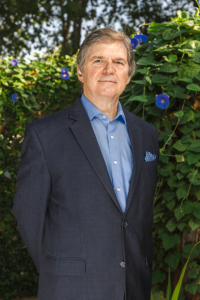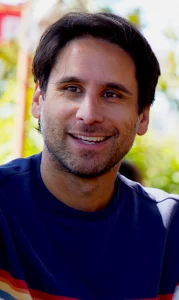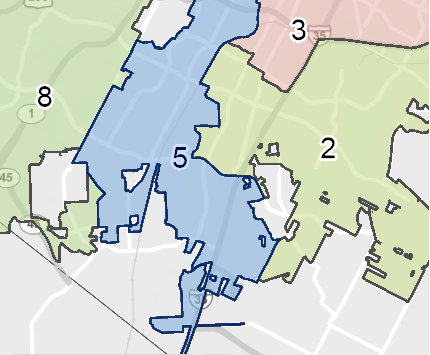District 5 Council candidates chat with the ‘Monitor’: Part II
Friday, October 7, 2022 by
Nina Hernandez Read Part I of the series here.

Photo by Tomas Segura
Stephanie Bazan grew up in South Austin. Her first experience in public service was as a member of the Girl Scouts. The communications professional and mom of two said her passions for service and her hometown brought her into the race.
“I deeply care about Austin and the future of our city, and I want to ensure that as our city continues to grow that it remains a place for everybody and people who want to stay in the city can,” Bazan told the Austin Monitor.
Bazan, a member of South Austin’s Limon family, serves on the steering committee of the Austin Community Foundation’s Hispanic Impact Fund. She was a digital organizer for the 2020 U.S. Census, distributed gloves and face masks during the pandemic and hosted neighborhood supply drives in the aftermath of Winter Storm Uri.
If elected, Bazan says she would focus on addressing affordability, housing and homelessness. She would advocate for relaxed compatibility standards and a streamlined permitting process, as well as a housing-first approach to homelessness. She noted that the public “overwhelmingly” voted to approve Project Connect, and said the task now is to ensure it is implemented on time and on budget.
“I am doing this as a service to my community. I know it’s going to be hard, but I’m here for it, and I’m here for the people of Austin,” Bazan said.

Photo courtesy of Ken Craig Campaign
District 5 residents might know Ken Craig from his seven years as a policy aide to Council Member Ann Kitchen. Before City Hall, the 23-year South Austin resident was a small-business owner. Craig started in public service doing volunteer work with the Society of St. Vincent de Paul.
“We need to work for a city in which everyone can thrive,” Craig told the Monitor. “Not just can live in, but thrive. Which means everybody should be able to live where they want, and be able to get from here to there and do all the things they need to do in daily life without it bankrupting them.”
Craig said the city needs to take an “intentional and directed” approach to affordability. Project Connect, he said, will provide a framework for the city to continue to develop housing, parks and cultural opportunities. Craig is proud of the work he’s been able to do at City Hall promoting better working conditions, particularly helping raise wages for Austin-Travis County EMS.
“Another aspect of affordability that we have to remember is good wages and good working conditions,” he said.
If elected, Craig said he would advocate to continue the Austin CARES program, which sends a health care professional instead of police to mental health distress calls. He would also continue the Housing-Focused Encampment Assistance Link, or HEAL initiative, intended to connect people living in encampments with supportive services.

Photo courtesy of Aaron Velazquez Webman for City Council Campaign
Two years ago, Aaron Velazquez Webman moved with his wife and two children from Los Angeles to Austin. The immigration attorney, filmmaker and entrepreneur told the Monitor he hopes to help Austin avoid the mistakes California has made by bringing “principled perspective” to decision-making as a Council member. He has promised that if elected this will be his first and last time running for office.
“We need to absolutely right now start making good decisions in order to have a shot at the city growing in a healthy and cohesive way moving forward,” Webman said.
Webman said he would resist “top-down, universal plans” in general and with regard to zoning, and proposed engaging neighborhood by neighborhood to achieve consensus on reform. On the issue of homelessness, he said Austin has erred in the past by spending on programs without effectively tying those funds to performance metrics.
“There’s a lot of reckless spending when it comes to the various homeless programs in Austin and that’s the exact model that totally ruined places like Portland, Seattle, San Francisco and Los Angeles,” Webman said.
Webman said it’s important to hold police accountable. “But when you’re hostile towards an entire force, it makes it extremely difficult for good people to apply in the first place,” he said. “Because you can’t train candidates that don’t exist.”
The Austin Monitor’s work is made possible by donations from the community. Though our reporting covers donors from time to time, we are careful to keep business and editorial efforts separate while maintaining transparency. A complete list of donors is available here, and our code of ethics is explained here.
You're a community leader
And we’re honored you look to us for serious, in-depth news. You know a strong community needs local and dedicated watchdog reporting. We’re here for you and that won’t change. Now will you take the powerful next step and support our nonprofit news organization?












